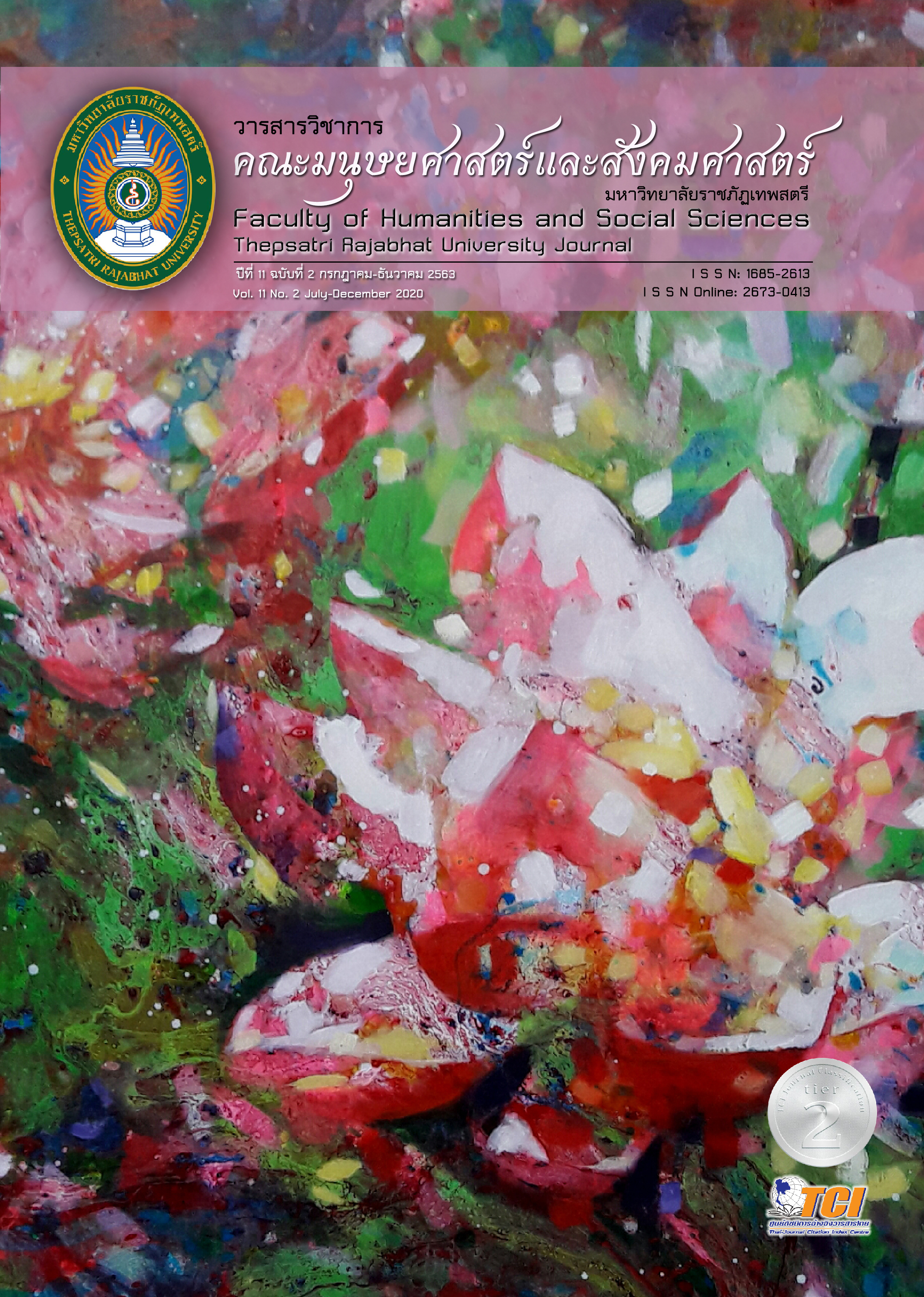การพัฒนารูปแบบการฝึกประสบการณ์วิชาชีพบริหารการศึกษาในยุคดิจิทัล การพัฒนารูปแบบการฝึกประสบการณ์วิชาชีพบริหารการศึกษาในยุคดิจิทัล
Main Article Content
บทคัดย่อ
บทความวิจัยนี้มีวัตถุประสงค์เพื่อ 1) ศึกษาสภาพปัจจุบันและสภาพที่พึงประสงค์ของการฝึกประสบการณ์วิชาชีพบริหารการศึกษา ในยุคดิจิทัล และ 2) พัฒนารูปแบบการฝึกประสบการณ์วิชาชีพบริหารการศึกษา ในยุคดิจิทัล โดยใช้วิธีวิจัยแบบผสมผสานทั้งเชิงปริมาณและคุณภาพ มีขั้นตอนการวิจัย 4 ขั้นตอน คือ (1) ศึกษาสภาพปัจจุบันและสภาพที่พึงประสงค์ในการฝึกประสบการณ์วิชาชีพบริหารการศึกษา ในยุคดิจิทัล ในสถาบันที่จัดการศึกษาลักสูตรปริญญาโททางการบริหารการศึกษา โดยใช้กลุ่มตัวอย่าง จำนวน 90 คน เก็บข้อมูลโดยใช้แบบสอบถาม (2) หาค่าความต้องการจำเป็นในการฝึกประสบการณ์วิชาชีพบริหารการศึกษา ในยุคดิจิทัล (3) ประเมินความเหมาะสมและความเป็นไปได้ของรูปแบบ โดยผู้ทรงคุณวุฒิเป็นรายบุคคล 30 คน และประชุมกลุ่มผู้ทรงคุณวุฒิ 15 คน และ (4) ปรับปรุงและนำเสนอรูปแบบ การวิเคราะห์ข้อมูลใช้สถิติเชิงบรรยาย และการวิเคราะห์เนื้อหา ผลการวิจัย พบว่า 1) สภาพปัจจุบันและสภาพที่พึงประสงค์ของการฝึกประสบการณ์วิชาชีพบริหารการศึกษา ในยุคดิจิทัล ในภาพรวมมีค่าเฉลี่ย อยู่ในระดับน้อย ทั้ง 2 สภาพ และ 2) รูปแบบการฝึกประสบการณ์วิชาชีพบริหารการศึกษา ในยุคดิจิทัล เป็นรูปแบบที่มีความเหมาะสมและเป็นไปได้ โดยรูปแบบที่พัฒนาขึ้น ประกอบด้วย 3 ส่วน คือ ส่วนที่ 1 หลักการ แนวคิด และวัตถุประสงค์ของรูปแบบ ส่วนที่ 2 องค์ประกอบของการฝึกประสบการณ์วิชาชีพบริหารการศึกษา ได้แก่ มาตรฐานวิชาชีพบริหารการศึกษา หลักเกณฑ์การฝึกประสบการณ์วิชาชีพบริหารการศึกษา ผลลัพธ์และสมรรถนะของวิชาชีพบริหารการศึกษา การใช้เทคโนโลยีสารสนเทศในการนิเทศ ส่วนที่ 3 การนำรูปแบบไปใช้
Downloads
Article Details
เนื้อหาและข้อมูลในบทความที่ตีพิมพ์ในวารสารวิชาการคณะมนุษยศาสตร์และสังคมศาสตร์ มหาวิทยาลัยราชภัฏเทพสตรี ถือเป็นข้อคิดเห็นและความรับผิดชอบของผู้เขียนบทความโดยตรง ซึ่งกองบรรณาธิการวารสารไม่จำเป็นต้องเห็นด้วย หรือร่วมรับผิดชอบใดๆ
บทความ ข้อมูล เนื้อหา รูปภาพ ที่ได้รับการตีพิมพ์ในวารสารวิชาการคณะมนุษยศาสตร์และสังคมศาสตร์ มหาวิทยาลัยราชภัฏเทพสตรี ถือเป็นลิขสิทธิ์ของวารสารวิชาการคณะมนุษยศาสตร์และสังคมศาสตร์ มหาวิทยาลัยราชภัฏเทพสตรี หากบุคคลหรือหน่วยงานใดต้องการนำทั้งหมดหรือส่วนหนึ่งส่วนใดไปเผยแพร่ต่าหรือกระทำการใดๆ จะต้องได้รับอนาญาตจากวารสารวิชาการ ฯ ก่อนเท่านั้น
เอกสารอ้างอิง
กระทรวงศึกษาธิการ. (2558). หลักสูตรมาตรฐานบัณฑิต 2558. ราชกิจจานุเบกษาเล่ม 132 ตอนพิเศษ 295ง 13 พฤศจิกายน 2558.
จรัญ บุญช่วย. (2556). เทคโนโลยีสารสนเทศเกี่ยวกับการบริหารการศึกษา. สืบค้น ตุลาคม 19, 2562. จากknirun1.blogspot.com/2013/04/blog-post_26.html.
ประเสริฐ บุญเรือง.(2556). การจัดการศึกษาตลอดชีวิต. วารสาร กศน. สืบค้น ธันวาคม 9, 2558. จาก https://panchalee.files.wordpress.com.
นันทวัฒน์ ภัทรกรนันท์. (2560). การพัฒนารูปแบบการฝึกประสบการณ์วิชาชีพของนักศึกษาหลักสูตรศึกษาศาสตรบัณฑิต สาขาวิชาการศึกษาตลอดชีวิต. วารสารเวอร์ริเดียน มหาวิทยาลัยศิลปากร, 10(2), 1317 -1329.
มาลัย วงศ์ฤทัยวัฒนา .(2562). แนวทางการบริหารโรงเรียนขนาดเล็กยุคดิจิทัลสู่ความเป็นเลิศของสำนักงานเขตพื้นที่การศึกษาประถมศึกษาชัยนาท, วารสารวิจัยและพัฒนา วไลยอลงกรณ์ ในพระบรมราชูปถัมภ์, 14(1), 22-30.
วันวดี กู้เมือง. (2560). ระบบเทคโนโลยีสารสนเทศมีความสำคัญต่อการศึกษาอย่างไร. สืบค้น ตุลาคม 11, 2562 จาก https://www.gotoknow.org/posts/427621.
วิมล จันทร์แก้ว. (2561). รูปแบบการพัฒนาภาวะผู้นำเชิงสร้างสรรค์ของผู้บริหารสถานศึกษา สังกัด สำนักงานเขตพื้นที่การศึกษาประถมศึกษา สุราษฎร์ธานี เขต 3. ปทุมธานี: มหาวิทยาลัยรังสิต.
สำนักงานเลขาธิการคุรุสภา. (2556). ข้อบังคับคุรุสภา ว่าด้วยมาตรฐานวิชาชีพ พ.ศ. 2556. ราชกิจจานุเบกษา. (4 ตุลาคม 2556).
สุวิมล ว่องวาณิช. (2550). การวิจัยประเมินความต้องการจำเป็น. กรุงเทพฯ: จุฬาลงกรณ์มหาวิทยาลัย.
พิสณุ ฟองศรี. (2550). การประเมินทางการศึกษา: แนวคิดสู่การปฏิบัติ (พิมพ์ครั้งที่ 4). กรุงเทพฯ: พรอพเพอร์ตีพริ้น.
Bodditt, L. Michelle and others. (2000, April). “Experiential learning:Marketing; Selling, Sales Management.”. Journal of Marketing Education, 22.
Byerly, Steven. (2001, May). Linking Classroom Teaching to the Real World Through Experiential Instruction. Phi De Lta Kappan, 82, 697.
Phaserd, A. (2017). “Way to Knowledge 4.0”. The Knowledge, 1(3), 3-7.


